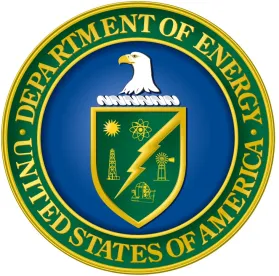DOE Announces Clean Hydrogen Funding Opportunity
The Department of Energy (DOE) has announced $47 million in funding to accelerate the research, development, and demonstration (RD&D) of affordable clean hydrogen technologies. Administered by DOE’s Hydrogen and Fuel Cell Technologies Office (HFTO) and working in concert with hydrogen opportunities funded in the Bipartisan Infrastructure Law, projects funded under this opportunity will reduce costs, enhance hydrogen infrastructure, and improve the performance of hydrogen fuel cells. The funding opportunity focuses on RD&D of key hydrogen delivery and storage technologies as well as affordable and durable fuel cell technologies. Fuel cell RD&D projects will focus particularly on applications for heavy-duty trucks. Topic areas include 1) Hydrogen Carrier Development, 2) Onboard Storage Systems for Liquid Hydrogen, 3) Liquid Hydrogen Transfer/Fueling Components and Systems, and 4) High-Performing Durable Membrane Electrode Assemblies for Medium and Heavy-Duty Applications. The application process will include two phases: a concept paper phase and a full application phase. Concept papers are due on February 24, 2023, and full applications are due on April 28, 2023.
Report on Puerto Rico Grid Resilience
The Federal Emergency Management Agency (FEMA) and DOE’s Grid Deployment Office have released a one-year progress report for the Puerto Rico Grid Resilience and Transition to 100% Renewable (PR100) Study. The report shows that renewable energy potential in Puerto Rico significantly exceeds total energy demand now and through 2050; distributed energy resources and alternative system configurations (e.g., community solar, agrovoltaics) could ensure Puerto Rico meets its renewable energy targets while preserving agricultural land and protected areas; significant additional generation capacity is needed immediately to improve reliability; smaller renewable resources spread across the power system could recover faster from disruptive events than the current system, which consists of fewer and larger power plants; and prioritizing stakeholder input and interagency coordination is key to overcome past challenges.
National Labs Launch Program to Help Communities Meet Energy Goals
A new $50 million program aimed at helping communities transition to clean energy systems that are reliable, affordable, equitable, and reflective of local priorities was launched by DOE’s National Renewable Energy Laboratory (NREL) with support from the Pacific National Laboratory, Argonne National Laboratory, Lawrence Berkeley National Laboratory, and Oak Ridge National Laboratory. The Clean Energy to Communities (C2C) program provides communities with expertise and tools to achieve their clean energy goals. C2C is funded by the U.S. Department of Energy and managed by NREL. C2C will offer three types of support for communities: 1) in-depth partnerships for community teams composed of local governments, community-based organizations, and utilities for a three-year partnership; 2) peer-learning cohorts that include Tribal, city, town, and county governments, metropolitan and regional planning organizations, electric utilities, and community-based organizations for a roughly six-month commitment, and 3) an expert match for city, town, county, and Tribal governments, metropolitan and regional organizations, community-based organizations, nongovernmental organizations, utilities, and universities, involving a time commitment of 40 – 60 hours. In-depth partnerships will focus on any renewable energy, energy efficiency, or transportation electrification planning project. Peer-learning cohorts will have specific, evolving topics. The expert match will support any projects relating to renewable energy, energy efficiency, or transportation electrification.
National Blueprint for Transportation Decarbonization
The U.S. Department of Transportation (DOT), the U.S. Department of Housing and Urban Development (HUD), the Environmental Protection Agency (EPA), and DOE released the U.S. National Blueprint for Transportation Decarbonization, which lays out a strategy for cutting all greenhouse gas emissions from the transportation sector by 2050. The blueprint will be followed by more detailed sector-specific action plans to create a comprehensive suite of strategies. The blueprint is the result of a Memorandum of Understanding signed by each of the participating agencies in September 2022.
Bipartisan Infrastructure Law & Inflation Reduction Act Opportunities
In January, DOE announced the following opportunities:
-
Home Energy Rebates Program (Request for Information) on best practices to support durable market demand for installations that improve housing energy performance nationwide. Responses to this RFI will be used to create program guidance that will assist states, territories, and Indian Tribes in designing, managing, and improving home energy rebate programs. The goal is to collect information that will ultimately support states, territories, and Indian Tribes in creating Home Energy Rebate programs that effectively serve U.S. households with technology products and services that reduce energy bills, increase home comfort, improve indoor air quality, and reduce greenhouse gas emissions. Responses are due no later than 8:00 PM ET on March 3, 2023.
-
Transmission Siting and Economic Development Grants Program (Request for Information) seeking information from stakeholders regarding issues related to the provision of grants to facilitate the siting of interstate and offshore electricity transmission lines, including possible tools and resources that may reduce the time for siting authorities to reach decisions, and opportunities to increase community engagement and reduce conflicts that can stall siting processes. Responses are due no later than 5:00 PM ET on February 28, 2023.




 />i
/>i

